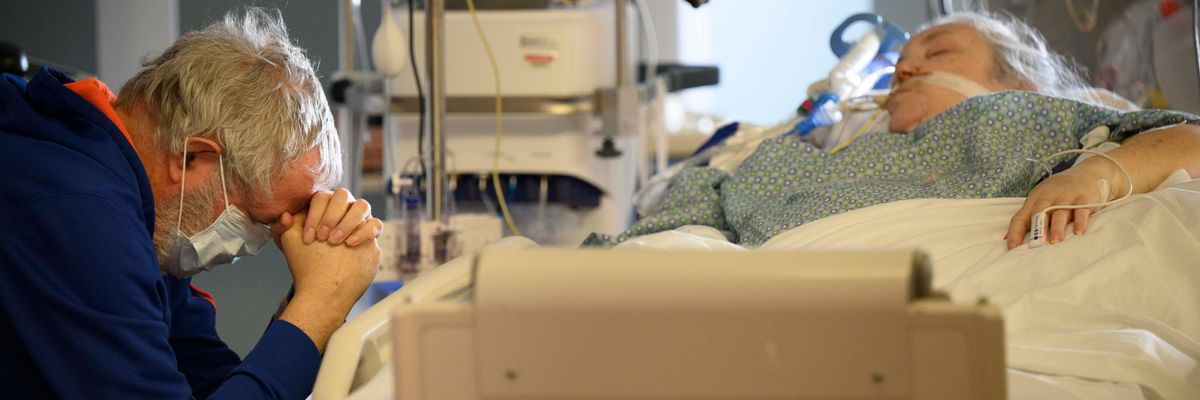In Hinds County, Miss., where nearly half of all residents are poor or low income, about 3 in 100 people have died of covid-19. Olivia Womack, a student at the University of Mississippi who grew up in Hinds County, has lost 20 members of her extended family to the coronavirus.
America's healing will not be complete until we address the poverty at the root of our covid catastrophe.
About 1,000 miles north in Marathon County, Wis., about a quarter of the people live under 200 percent of the poverty line, and death rates from covid-19 are almost the same as in Hinds County. Britnie Remer, who lives in the county and is only partially vaccinated because of an allergy, worries about the impact of industrial pollution, low wages and a lack of adequate health care in her Rust Belt community.
Womack and Remer live in communities often portrayed as polar opposites: Womack's county supported Joe Biden by a 3-to-1 margin over Donald Trump in 2020, while Remer's went almost 3 to 2 for Trump over Biden. But a new study released this week by the Poor People's Campaign and the U.N. Sustainable Development Network shows a disturbing link between the counties and covid-19 deaths.
"Mapping the Intersections of Poverty, Race and Covid-19" presents the first comprehensive county-level picture of how poverty has shaped both the spread of covid-19 and its devastating impact on the United States. It shows that death rates in the highest-income group are half the death rates in the lowest-income group. And, when we focus on the covid waves after vaccines were made available, the disparities are even more striking: During last fall's delta wave, death rates in the United States' poorest counties were five times those in the nation's wealthiest counties.
In almost every income group nationwide, county-by-county vaccine coverage ranges from high (85 percent and higher) to almost nonexistent (under 15 percent). Although average vaccination rates are generally higher in the highest-income counties, that doesn't fully explain the variation in death rates in the later waves of the pandemic.
To understand why some Americans have been so much more vulnerable to unnecessary death, we have to look at the consequences of poverty.
In Hinds County, where Womack lives, people are twice as likely to be uninsured as residents of the nation's wealthiest communities. In Remer's hometown of Wausau, Marathon's county seat, drinking wells in the municipal water system have higher levels of a pollutant than proposed state regulations allow. Like many low-income communities across America, Wausau is marked by the increased health risks that accompany industrial waste.
Since the start of the pandemic, public health officials have tried to understand why the covid death rate in the United States has been so much higher than in other nations with comparable resources and access to vaccines. Democrats have blamed Trump and other Republicans who failed to follow the advice of public health officials. Researchers also pointed to the role of systemic racism in health-care disparities. But race and partisan politics alone do not explain the disparity. Only when we focus on the impact of poverty can we see how uniquely vulnerable America is.
America will not be well until we invest in the communities where people like Womack and Remer live. And we will not find the political will to make that investment until poor and low-income people of every race and region unite. This is why we are organizing with poor people from every state to march in Washington on June 18 to demand equal access to health care, living wages, affordable housing, drinkable water, voting rights and a future where children in struggling communities share the promise of democracy rather than the curse of poverty.
When a public health crisis burns through a society, poverty fuels the fire. If the nation had paid attention to the widespread poverty that preceded the pandemic, thousands of deaths might have been prevented. As preachers, we know that no nation can thrive until it cares for its most marginalized members.
"If you spend yourselves on behalf of the hungry and satisfy the needs of the oppressed," the prophet Isaiah said, "your light will rise in the darkness, and your night will become like the noonday."
America's healing will not be complete until we address the poverty at the root of our covid catastrophe.

